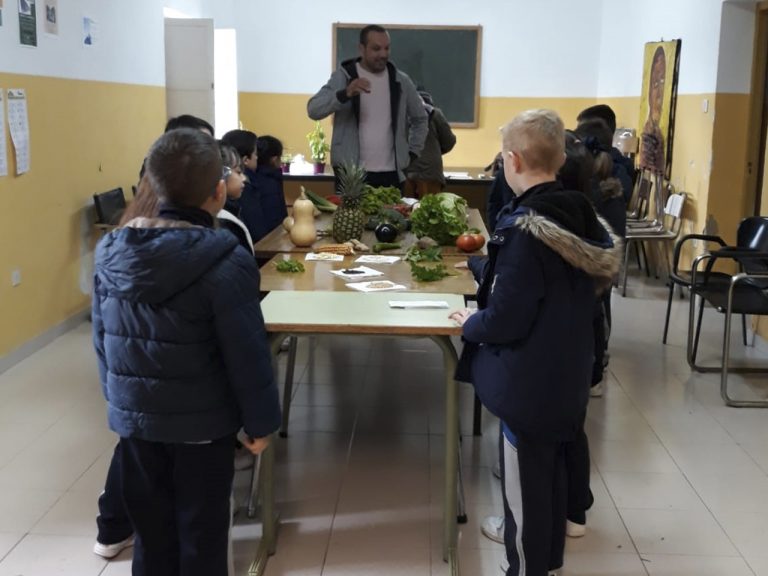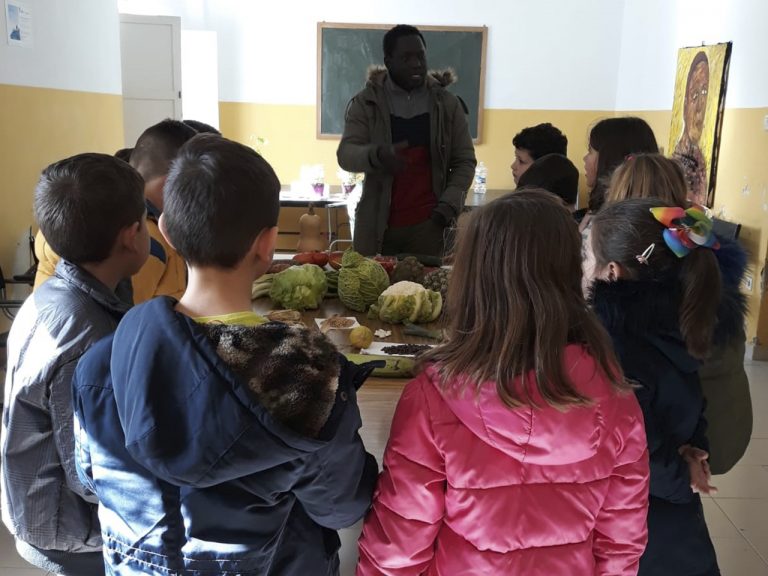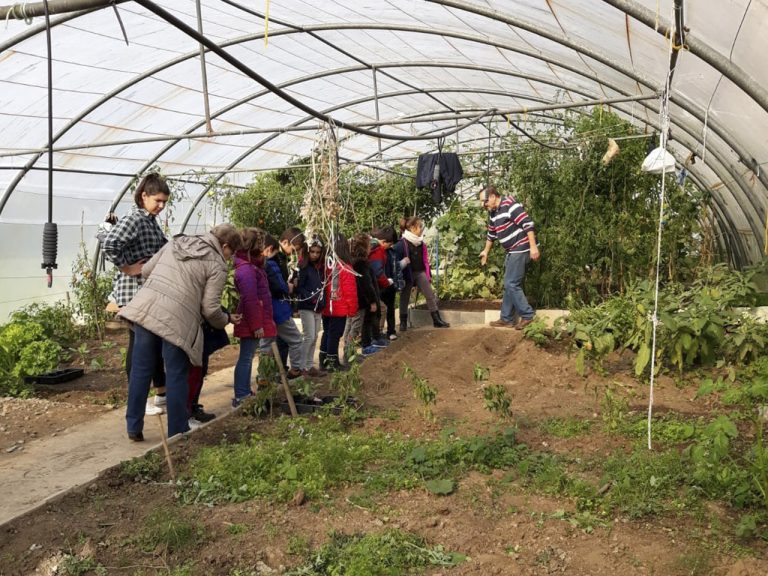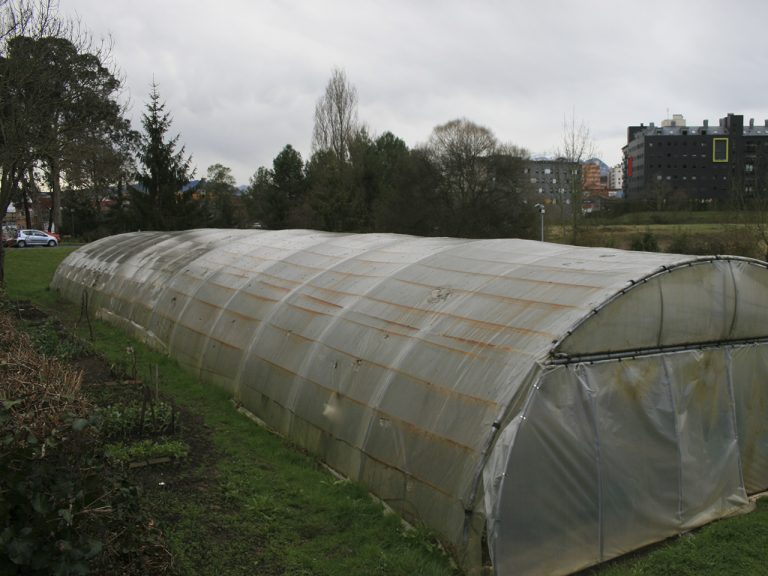Enabling children contact with nature and gardening. Training of social skills through passing garden knowledge.
Description of the activity
The urban gardens workshops have had as a general objective the promotion of children’s contact with nature through the ecological urban garden.
In the case of the workshops in Asturias Acoge during the educational visit to the garden, an attempt is made to emphasise the following aspects:
- Intercultural values in the context of an orchard.
- Explaining organic farming and the need for a healthy diet.
- Tools and basic utensils in an orchard.
- Preparation of the land: composting.
- The vegetables: how they are sown, planted, maintained and harvested.
With the objective of promoting interculturality and approaching the immigrant collective, each workshop was given by participants in the Huertas Acoge project (all of them are migrants) coordinated by Asturias Acoge, as well as volunteers from the association and Ahmed who is from Morocco and was a beneficiary of the Asturias Acoge project, and currently owns a plantation of organic vegetables and raspberries.
Each workshop lasts one and a half hours and a maximum of 25 students are taught. They are divided into several groups to facilitate the active participation of each child.
Thanks to this workshop, the migrant gardeners can come into contact with children and in this way feel more integrated into the Asturian society.
They can also gain self-esteem, feel more confident about speaking in public, , feel comfortable and protected, and can also tell their story so that children know and are aware of the difficulties of their new neighbours.
Mainly the workshop is intended for students of the second year of primary education in the city of Oviedo. During the year 2018, 10 workshops were carried out with the participation of 239 students from 8 primary schools.

 English
English  Deutsch
Deutsch  Español
Español  Svenska
Svenska 






